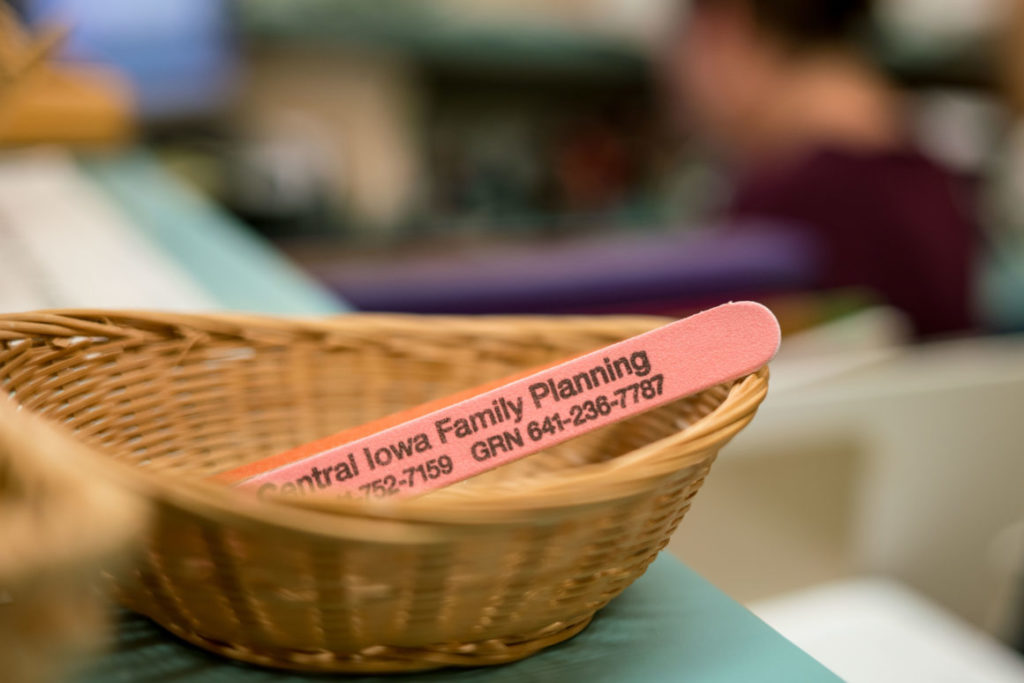Ever since the closing of Central Iowa Family Planning (CIFP), a Title X funded family planning clinic that provided feminist and LGBTQIA friendly health care, the Grinnell community has been lacking an important health resource. However, the medical community of Grinnell and the surrounding areas, in partnership with the College, is currently working to open a new clinic or provide the lost services to the community.
Primary Health Care (PHC), based out of Marshalltown, IA, worked in partnership with CIFP. PHC is currently considering purchasing a mobile unit as another option for care. This service would not be available until July 1.
PHC is also considering opening another Title X funded clinic in Grinnell. If a clinic were to open in Grinnell, the Grinnell Regional Medical Center has stated that they would help by providing space. “The hospital has suggested that Primary Health Care may be able to use free clinic space,” said Angela Voos, vice president for strategic planning. This space would be at the Light Center, the free clinic near the hospital.
“PHC noted that their board is concerned about making a decision right now due to the potential changes with the ACA (Affordable Care Act) and cuts in funding, but noted that they are open to “exploring all options,” wrote Deb Shill, director of SHACS operations, in an email to The S&B.
“With the funding in jeopardy in Iowa, and probably in the federal government … it’s really up in the air, and [that’s] deeply disturbing,” Voos said.
In the meantime, the College is working with PHC to extend their Saturday hours and provide a shuttle for both college students and community members. “They thought that twice a month they could do a pick-up and take-back service, and we said, help us help you. Period,” Voos said. “If you have the transportation and you need funding to pay for that transport, please help us help you.”
The College does not consider a shuttle service to be a permanent solution. “That’s like a short-term fix until they can get things figured out,” Shill said.
The opening of a mobile clinic or the transporting of Grinnellians to Marshalltown would not affect the local medical community in a negative way. “My understanding is that this would not impede on their own practices. This is a population that is deeply underserved, and we are not over-supplied in medical care,” Voos said. “That was my understanding … that this would not be competition”
The closing of CIFP left an important gap in resources for those that need confidential care or more affordable care. Voos worries about those populations. “On this side, there’s frustration that it’s taking forever. I’m glad to know that a lot of people are taking advantage of the care that’s here,” she said. “The remaining concerns are twofold: one, about high school students and middle school students, and indigent families here, because I don’t know where they’re getting their care. And the second, the LGBTQIA community. … The family practice here, I think is great, but we want to make sure all those pieces, as community members, are picked up.”
SHACS can provide a variety of care as well, including Plan B for 20 dollars, at cost, HIV testing, STD testing and safe sex supplies. Shill is also working on a contract for Ella, a weight-based Plan B.
SHACS also has funding set aside to help students make some medical payments, including the cost of pill packs.
Shill emphasized that she wanted students to use SHACS as an important resource. “We want to encourage [students] to do that, to come and see the nurses. … We can look at their insurance plan, we can call and schedule the appointments, we can help with transportation,” she said.
SHACS can also help students work through insurance issues. “We can connect them to Medicaid resources. … If they don’t have insurance and they don’t want to College to know because every student is required, we would help them get connected with Medicaid … confidentially.”
When CIFP closed, the only OBGYN at GRMC was on maternity leave. She is now back at work, and much of the care lost by the closing of CIFP can be found in town. “Pretty much most of the care can be delivered here in the community through our local providers — they can do the STD testing, they can do the implants,” Shill said. “It’s for those that have limited funding, and that’s the community that we are trying to support in addition to all of our students, because of course funding is always a challenge when you’re a college student.”
While PHC considers applying to open a clinic in Grinnell, Shill and Voos are both working to help supplement the services available in the community.
“In the interim, we need to still move forward, because the services are still needed here,” Shill said.























































